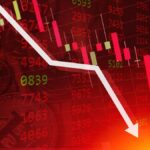Pharma Stocks Under Pressure Following Trump’s Tariff Announcement
Indian pharmaceutical stocks faced significant pressure on Friday following U.S. President Donald Trump’s announcement of a 100 percent tariff on branded and patented drugs, effective October 1, 2025. As of midday, the Nifty Pharma index experienced a decline of 2.27 percent, reaching 21,478.30 points, with Laurus Labs seeing a drop of over 5 percent, making it the leading loser. Other notable declines were observed in Biocon, Natco Pharma, Zydus Lifesciences, and Glenmark, while Sun Pharma managed a partial recovery from its intraday lows.
Analysts caution that this tariff could adversely affect Indian pharmaceutical exporters, although companies developing manufacturing facilities in the U.S. may qualify for exemptions.
The Nifty Pharma index opened significantly lower, plummeting 1.82 percent to 21,576.85 points in reaction to Trump’s announcement. The U.S. market constitutes approximately 35 percent of India’s pharmaceutical exports, valued at around $10 billion in FY25, making this tariff potentially damaging.
Experts have noted that India’s exports of branded or patented pharmaceuticals are minimal, as the country primarily exports off-patented drugs and generics. “The U.S. tariff on branded pharmaceuticals is unlikely to impact Indian generic drug exports significantly,” one analyst stated, noting that uncertainty remains regarding how complex generics and specialty medicines might be affected.
Maitri Sheth from Choice Institutional Equities stated that the 100 percent tariff aims to bolster domestic manufacturing while reducing reliance on foreign imports. However, if a company has begun construction on a U.S. manufacturing plant, its products would be exempt from these tariffs.
As trading continued, shares of Sun Pharma fell by 2 percent, trading at Rs 1,589.90, while other major stocks such as Natco Pharma, Laurus Labs, and Zydus Life saw similar downturns, reflecting the overall market reaction to Trump’s tariff announcement.
The announcement comes at a time when the pharma sector is still grappling with uncertainties, including potential future tariffs on more complex drug formulations.










